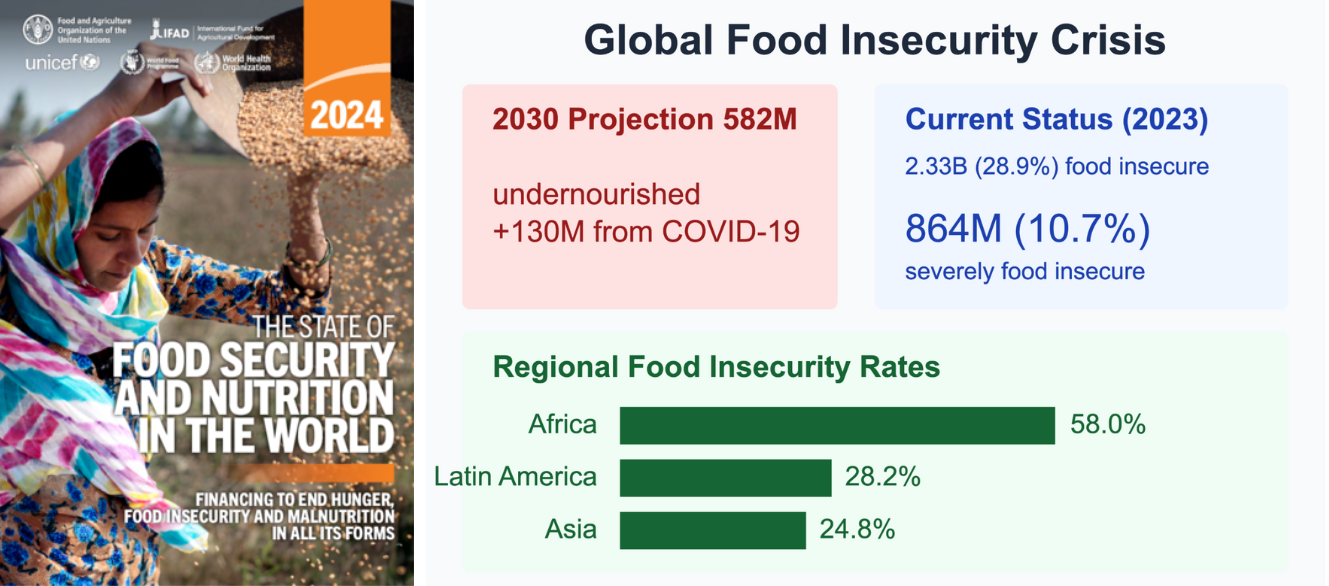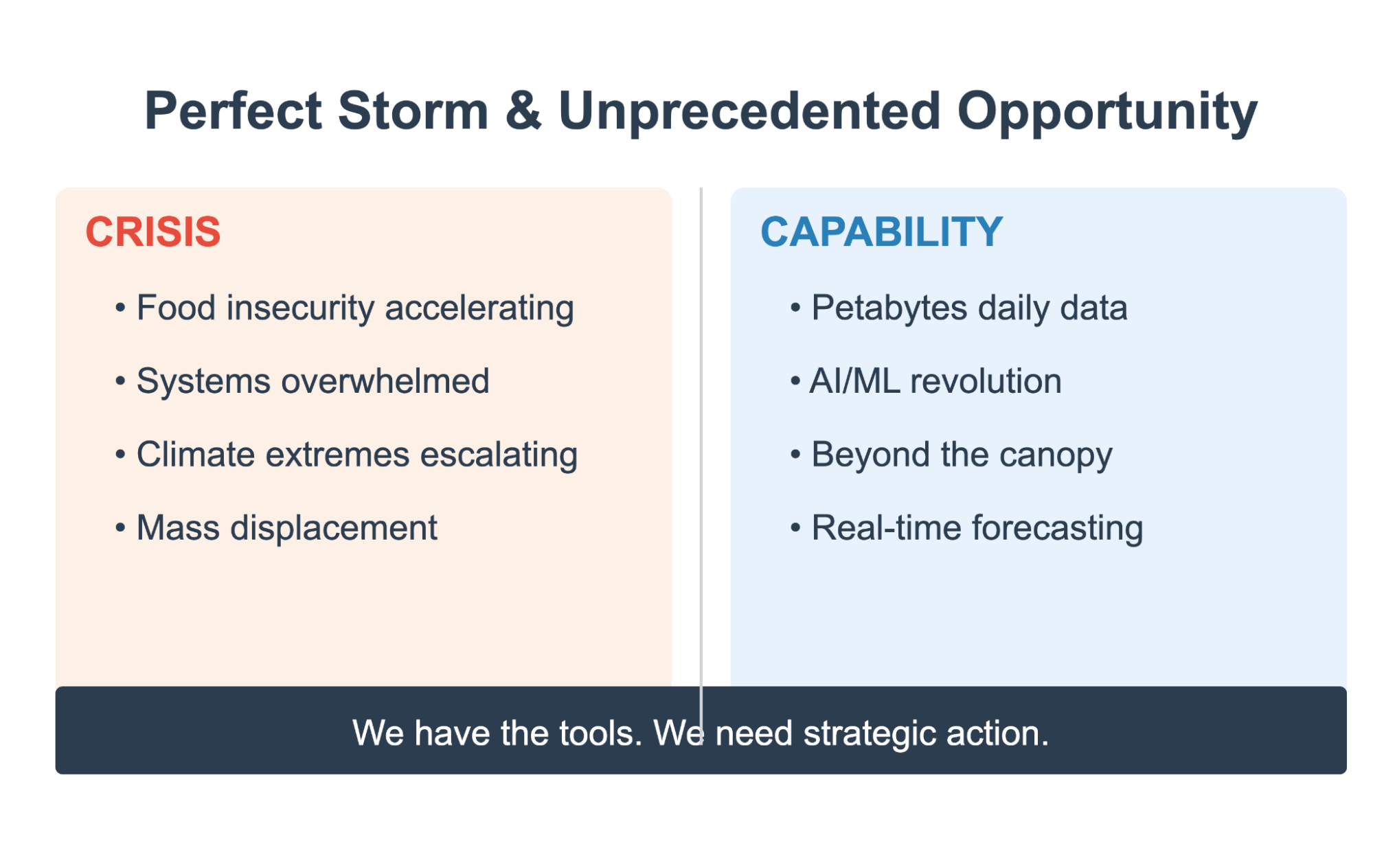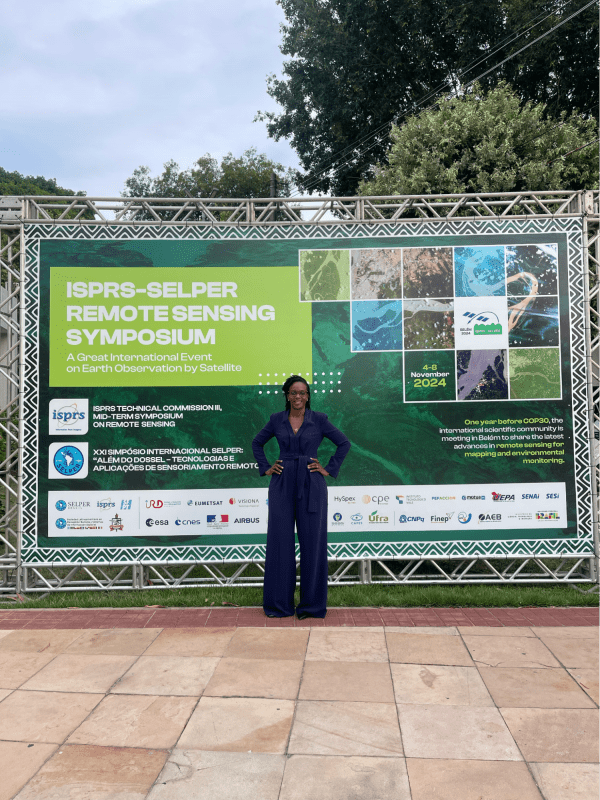A Personal Journey with Earth Observations: The Future We Are Cultivating
By Catherine Nakalembe, assistant professor at the Department of Geographical Sciences
Standing in Pará, in the heart of Amazonia, I find myself reflecting on the incredible journeys we take with Earth observations.
It's my first time in Pará and I must confess: I did dip my feet in the Amazon River before I left. There's something significant about discussing our planet's future where the world's largest rainforest meets some of its most critical agricultural frontiers.
The Perfect Storm We Face
In my years working at the intersection of Earth observations and food security, I've never seen challenges of this magnitude. We're living in a moment of extraordinary contradiction. On one side, we face unprecedented crises; on the other, we possess capabilities that would have seemed like science fiction just a decade ago.
Let me paint a picture of our perfect storm:

Food insecurity isn't just growing—it's accelerating exponentially. By 2030, we project 582 million people will face chronic undernourishment, with more than half in Africa. This isn't just about production—it's about access, stability, and survival. I often say, "You can't think when you're hungry, but you can't think about being hungry when you're running for your life."
Our traditional monitoring systems, designed for a more stable world, are simply overwhelmed. Climate extremes are creating cascading disruptions, and what we once called 'once-in-a-century' events now happen multiple times a year. Mass displacement from conflicts is disrupting food systems at a scale we've never seen before.
Some Hope in Technology
But here's where our story takes an unexpected turn. At this precise moment of maximum challenge, we find ourselves with extraordinary new capabilities. Through the work of so many organizations including my own work with partners across the globe, I've witnessed firsthand how Earth observation technologies are revolutionizing our approach to food security.
Consider what we can do today:
- We collect more Earth observation data in a single day than we collected in entire years just a decade ago.
- Through radar, LiDAR, and very high-resolution imaging, we've moved beyond the canopy – literally and figuratively.
- We can now forecast and predict changes with unprecedented accuracy, often identifying problems before they become crises.

From Data to Real Impact
The most rewarding part of my work has been seeing how these capabilities translate into real change on the ground—in Uganda, supporting the development of the Disaster Risk Financing program that directly linked early warning from Earth observation data to financial support for vulnerable communities in northeastern Uganda. In Kenya, supporting the development of the Kenya Crop Monitor has spurred impact, including rapid response to floods earlier this year and response to pest invasions that have saved countless crops.
Through our work with AGRA and COMESA Regional Food Balance Sheet initiative, we're linking markets and trade impacting food security by forecasting season crop yields of key commodities that will undoubtedly improve food access in focus countries, including Zambia, Malawi, Rwanda, Kenya, Tanzania and Uganda. This isn't just about creating pretty maps—it's about providing actionable intelligence that helps communities prepare for and respond to crises.
Building for the Future
But technology alone isn't enough. Through our work, I've identified four essential pillars for lasting change:
1. We must improve and leverage monitoring systems that provide actionable data at multiple scales.
2. We need to advance EO-AI methods that underpin these systems (we need really good underlying data).
3. We must develop and transfer capacity to national and local users—the most accurate map made with the best model and displayed on a website will not improve decision-making
4. We have to build strong, long-term partnerships with all stakeholders. How else will pesticides and emergency supplies be delivered to those who need them most?
The Path Forward
Are we where we need to be? Not yet, at least not everywhere. And yes, we need to do better. But I've never been more hopeful about our ability to address these challenges. The tools exist. The framework is clear. What we need now is committed action to implement these solutions and create lasting change.
As I prepare to leave Pará, I'm reminded that every satellite image we analyze, every algorithm we develop, and every partnership we build brings us one step closer to a more food-secure world. This is the future we are cultivating—one where technology serves humanity's most fundamental needs.

These reflections were originally presented at the ISPRS Technical Commission III Mid-Term Symposium on Remote Sensing and XXI SELPER International Symposium, Belém, Pará state, Brazil, November 2024.
All images courtesy of Catherine Nakalembe. Main image: Nakalembe at the symposium in Belém, Brazil.
Published on Mon, 11/18/2024 - 12:45



